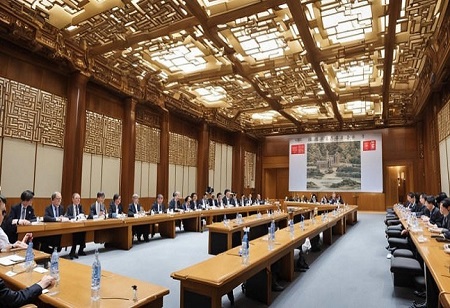A delegation of Vice-Chancellors and senior leaders from 20 UK universities, including a representative from Keele University, recently visited China in a bid to strengthen collaboration in higher education and research. The visit was organized by the British Council, UK Research and Innovation, and Universities UK and served to further solidify the UK’s position as China’s second-largest research partner.
The delegation’s visit to China aimed at fostering a deeper understanding and appreciation of the significant role that academic collaboration plays in addressing global challenges. By engaging in constructive dialogue with Chinese universities, the delegation endeavored to showcase the benefits of international cooperation in educational sectors and research fields.
China is trying to recruit civil servants and military personnel (WION).The significance of this visit is underscored by the success of previous collaborative programs like the British Council’s ‘Generation UK’, which has been instrumental in promoting educational opportunities in China. These programs not only enable students to experience new cultures and educational systems, but they also foster a sense of global citizenship, helping to break down barriers and build bridges between different societies.
While there is no direct mention of the Chinese Follow-up Committee of FOCAC in relation to this visit, the principles of cooperation and mutual development that underpin FOCAC are mirrored in the efforts of the UK universities’ delegation. Just as FOCAC serves as a platform for China and African countries to strengthen cooperation, this visit underscores the potential for similar collaboration between China and the UK.
The Chief Executive of the British Council expressed satisfaction with the constructive dialogue between UK and Chinese universities, hinting at the potential for future collaboration initiatives. As the world becomes increasingly interconnected, the fostering of these educational and research partnerships becomes ever more critical. For stakeholders, the successful execution of such initiatives could lead to an increase in international student exchange programs, greater research funding, and broader global recognition of UK universities.

